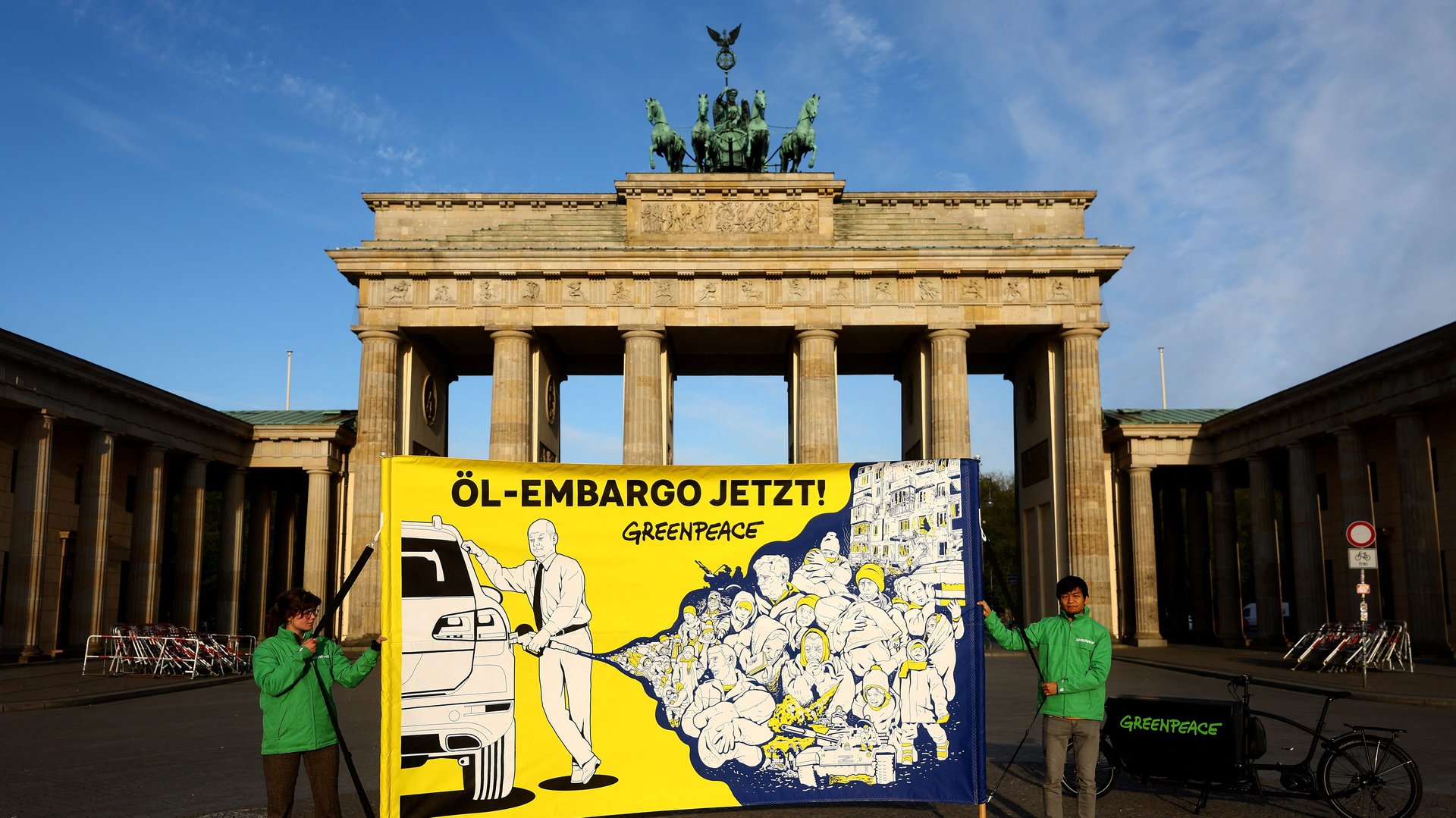A full European ban on Russian oil is coming
After weeks of reluctance over banning Russian oil imports, German officials today (Apr. 29) reversed course, agreeing to a gradual, EU-wide embargo. Other European countries have recently grown more amenable to such a ban as well, as Russia’s war on Ukraine has persisted.


After weeks of reluctance over banning Russian oil imports, German officials today (Apr. 29) reversed course, agreeing to a gradual, EU-wide embargo. Other European countries have recently grown more amenable to such a ban as well, as Russia’s war on Ukraine has persisted.
The EU’s 27 member states have to agree unanimously for a ban to come into effect. But Germany has been the major opponent to this measure, because it purchases so much Russian oil and gas. Last year, Germany bought 27 billion tons of Russian crude, a third of its overall oil consumption. “It was a mistake that Germany became so heavily dependent on energy imports from Russia,” Christian Lindner, Germany’s finance minister, told the New York Times earlier this month.
Germany is fast ridding itself of Russian oil
But like other European states, Germany has been scrambling to find alternative sources of fuel—to the extent that Russian oil now accounts for only 12% of domestic consumption. In all, the EU buys 3 million barrels of oil from Russia everyday. Countries like Germany can diversify their sourcing by buying instead from the US, Iran, Norway, and Canada, wrote Maciej Miniszewski, a climate and energy analyst at the Polish Economic Institute.
The two other big European customers of Russian oil, Poland, and the Netherlands, have both pledged to cut off all imports by the end of the year. Germany, too, wants time for a phased transition—a slow process, but still a significant shift from its earlier stance, in which German officials insisted that a ban on Russian oil would be too ruinous to European economies to be feasible.
Depriving Russia of oil revenues will ramp up the financial difficulties it already faces from a slew of Western sanctions. The EU will announce a sixth package of sanctions soon, possibly including proposals for the transition away from Russian oil.
Stopping imports of Russian gas, on the other hand, is still a more distant ambition. When Russia stopped supplies of gas to Poland and Bulgaria this week, other European countries stepped in to fill part of their needs. But last year, the EU imported 40% of its gas from Russia, and Brussels plans only to try to slash that by two-thirds by the end of this year.